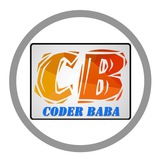Capegemini .docx
549.1 KB
Capegemini Interview math and reasoning question and answer
Understanding the Common Language Runtime:
The second part of the .NET Framework is the Common Language Runtime (CLR). The Common Language Runtime is responsible for executing your application code.
When you write an application for the .NET Framework with a language such as C# or Visual Basic .NET, your source code is never compiled directly into machine code. Instead, the C# or Visual Basic compiler converts your code into a special language named MSIL (Microsoft Intermediate Language).
MSIL looks very much like an object-oriented assembly language. However, unlike a typical assembly language, it is not CPU specific. MSIL is a low-level and platform-independent language.
When your application actually executes, the MSIL code is "just-in-time" compiled into machine code by the JITTER (the Just-In-Time compiler). Normally, your entire application is not compiled from MSIL into machine code. Instead, only the methods that are actually called during execution are compiled.
In reality, the .NET Framework understands only one language: MSIL. However, you can write applications using languages such as Visual Basic .NET and C# for the .NET Framework because the .NET Framework includes compilers for these languages that enable you to compile your code into MSIL.
You can write code for the .NET Framework using any one of dozens of different languages, including the following:
Ada Apl Caml COBOL Eiffel Forth Fortran JavaScript Oberon PERL Pascal PHP Python RPG Scheme Small Talk
The vast majority of developers building ASP.NET applications write the applications in either C# or Visual Basic .NET.
The second part of the .NET Framework is the Common Language Runtime (CLR). The Common Language Runtime is responsible for executing your application code.
When you write an application for the .NET Framework with a language such as C# or Visual Basic .NET, your source code is never compiled directly into machine code. Instead, the C# or Visual Basic compiler converts your code into a special language named MSIL (Microsoft Intermediate Language).
MSIL looks very much like an object-oriented assembly language. However, unlike a typical assembly language, it is not CPU specific. MSIL is a low-level and platform-independent language.
When your application actually executes, the MSIL code is "just-in-time" compiled into machine code by the JITTER (the Just-In-Time compiler). Normally, your entire application is not compiled from MSIL into machine code. Instead, only the methods that are actually called during execution are compiled.
In reality, the .NET Framework understands only one language: MSIL. However, you can write applications using languages such as Visual Basic .NET and C# for the .NET Framework because the .NET Framework includes compilers for these languages that enable you to compile your code into MSIL.
You can write code for the .NET Framework using any one of dozens of different languages, including the following:
Ada Apl Caml COBOL Eiffel Forth Fortran JavaScript Oberon PERL Pascal PHP Python RPG Scheme Small Talk
The vast majority of developers building ASP.NET applications write the applications in either C# or Visual Basic .NET.
